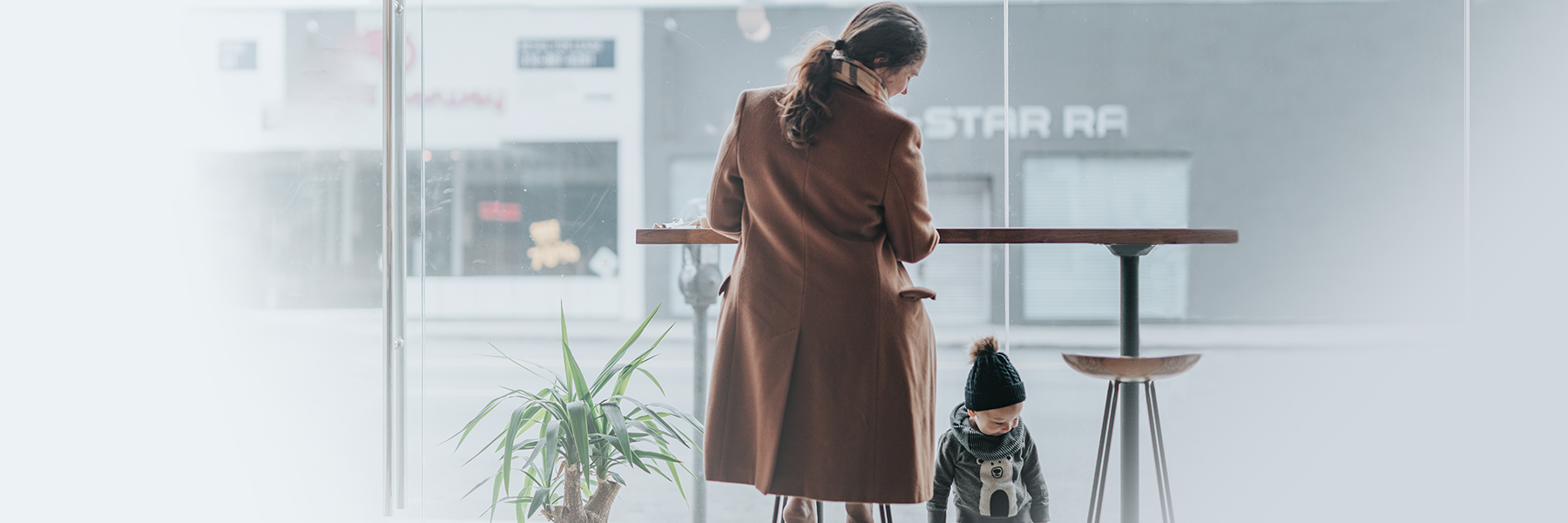INTRODUCTION
In late 2019, our OfferUp team began researching the data we’d need for the annual Recommerce Report we release every Spring. For 2020, we decided to dive into how local marketplaces are being used beyond fashion, and most notably by parents, who do a lot of shopping while raising kids. We wanted to take a closer look at how parents engage in the resale economy, while balancing the accompanying pressures of parenthood.
I got the idea for OfferUp when my wife and I were expecting our first child together, and my wife challenged me to sell the items we no longer needed to make room for the baby. We needed a simpler, easier way to sell the things we didn’t need, so OfferUp was born. Since then, I’ve bought and sold numerous things for my daughter and son on OfferUp, including their first cribs, bicycles, rain boots, and many other things that kids grow in and out of seemingly overnight.
That said, our world has changed quite a bit since last October, and we’ve all needed to adjust to a new normal amid the Coronavirus pandemic. So we decided, in order to give an honest and transparent assessment of the state of recommerce, we also needed to take a closer look at how Coronavirus has impacted families.
We learned that today’s parents are under more financial and social media stress than ever before. Parents are spending more per child and are concerned with the impact of their shopping habits on the world their children will inherit.
With the global impact of Coronavirus, these stressors have only increased. For example, 71% of parents are worried about their personal finances , and 81% describe their level of parenting stress as medium or high right now.
At OfferUp, we’ve always believed in the power of community. We are the largest mobile marketplace for local buyers and sellers in the U.S., and we are still growing. Last month we announced we’re joining with letgo to create a combined U.S. marketplace with more than 20 million monthly active users.
Our vision has always been to build a company that empowers people to connect and to prosper, and that has never been more important than it is now.
We’ll make it through this trying time, and we hope that our findings encourage you to reach out to a fellow parent or neighbor, and ask how you can help. We’re all in this together.
Nick Huzar
CEO, OfferUp

You can download a PDF of our report here.

THE FUTURE OF RECOMMERCE
U.S. market size and growth
Baby & Kids Recommerce Market Projected to Hit $5.6B By 2024
Recommerce spending will more than double over the next 5 years
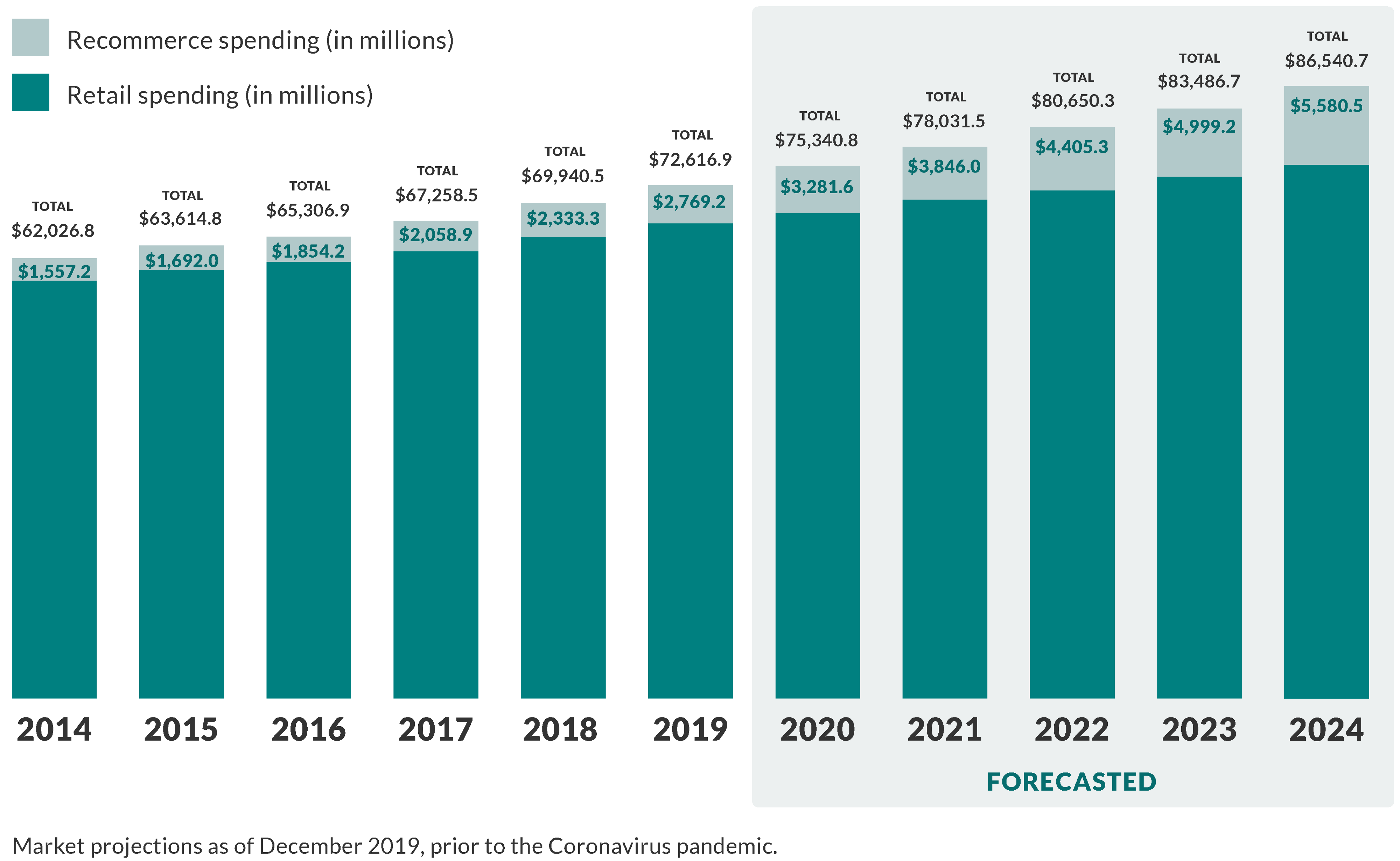
In 2014, recommerce accounted for just 2% of all baby and kids spending. By 2019 that proportion was 3.8%. By 2024, recommerce is forecast to make up almost 6.5% of the market.
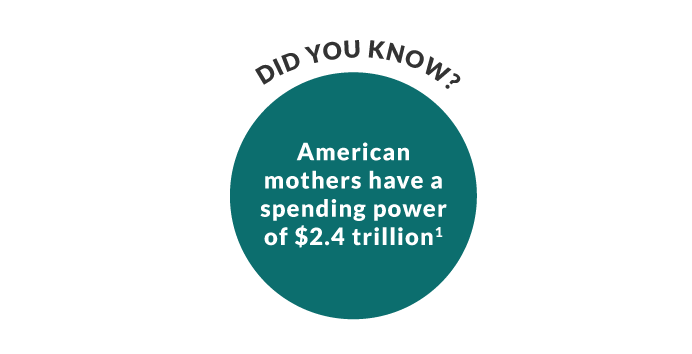
Recommerce Will Outpace Traditional Retail
The rise of recommerce is part of a wider shift in terms of where people are shopping for baby and kids products
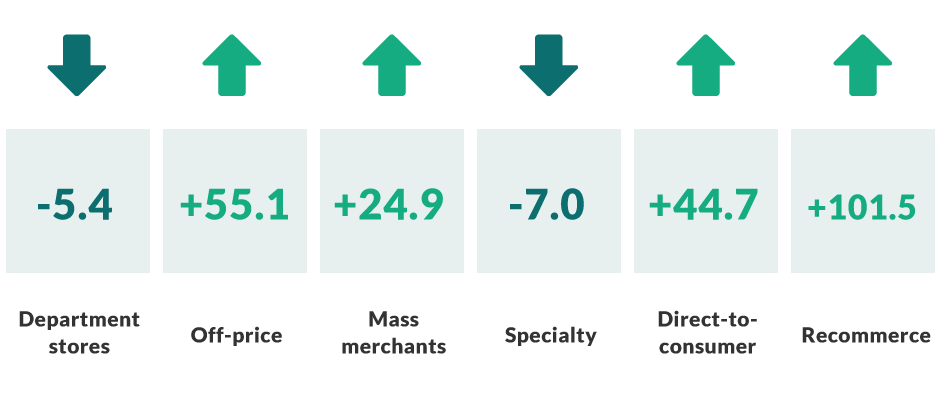
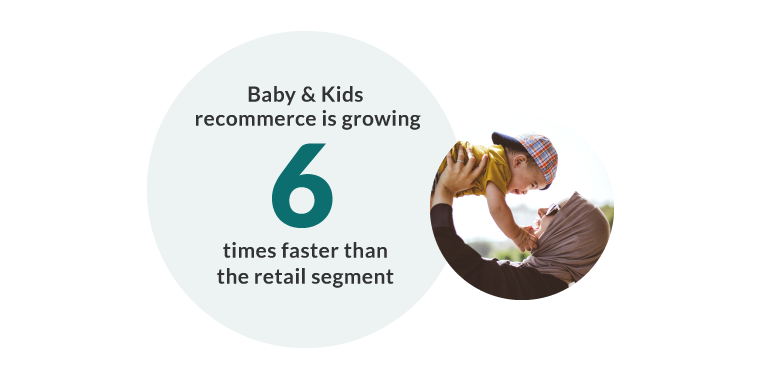
All Categories Will See The Impact of Recommerce
Recommerce is set to increase across all Baby & Kids categories, but the sharpest rise will be seen in furniture, apparel and furnishings
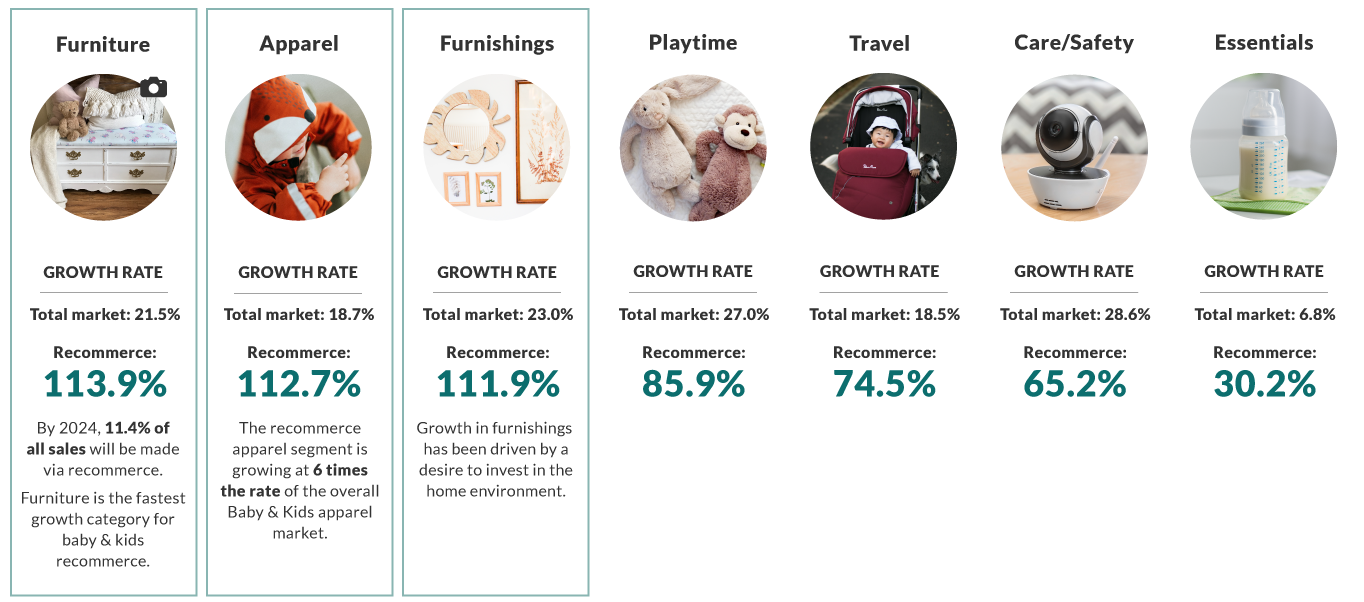
Measuring the Coronavirus Impact on the Retail Market
“There is no doubt that Coronavirus has disrupted the retail market and all segments within it. Over the short term this will have an impact on forecasts and, for this year, growth will be negative across most parts of the retail economy.
Recommerce is not immune from these impacts. However, the longer-term prognosis over the next few years is more optimistic. Factors like the desire to save money and a greater consciousness about behaving ethically will likely propel demand once the crisis is over. Equally, supply into the sector will be boosted by more people looking to sell surplus products to help their household finances.
Ultimately, 2020 will be seen as something of a lost year for retail. However, our desire to buy, to interact and to engage will ensure that growth will resume at some point and many of the trends we witnessed before the crisis will continue once it is over.”
- Neil Saunders, GlobalData Managing Director & OfferUp Recommerce Report Lead Analyst
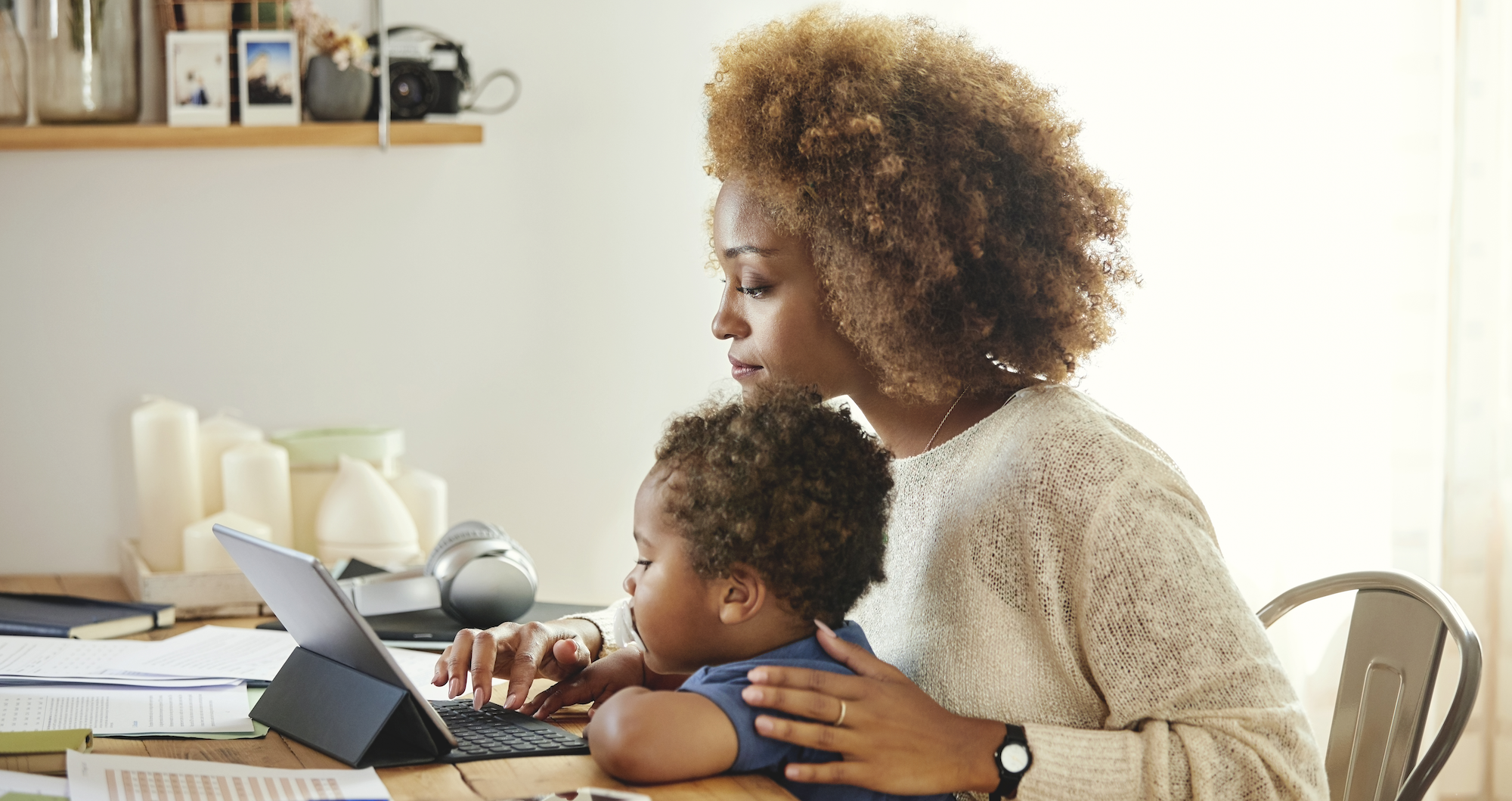
FEELING THE SQUEEZE
The pressures of modern parenting
Parents Are Spending More Per Child
The amount spent per child per year will rise by 17.7% or $209 by 2024
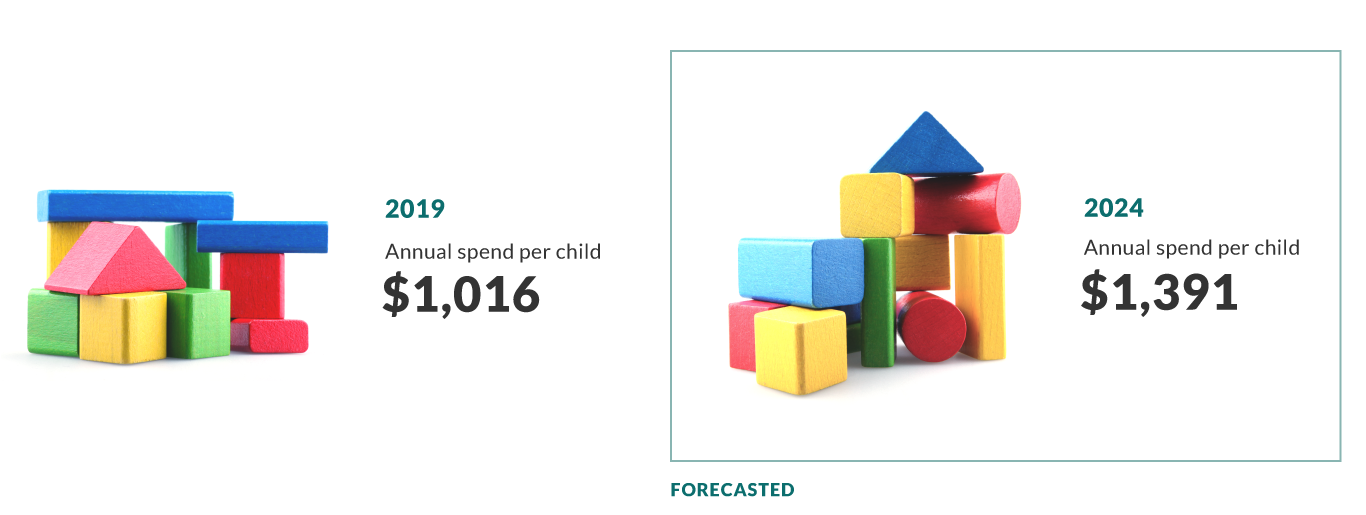
For the first-born child, parents spend around $1,790 on initial products
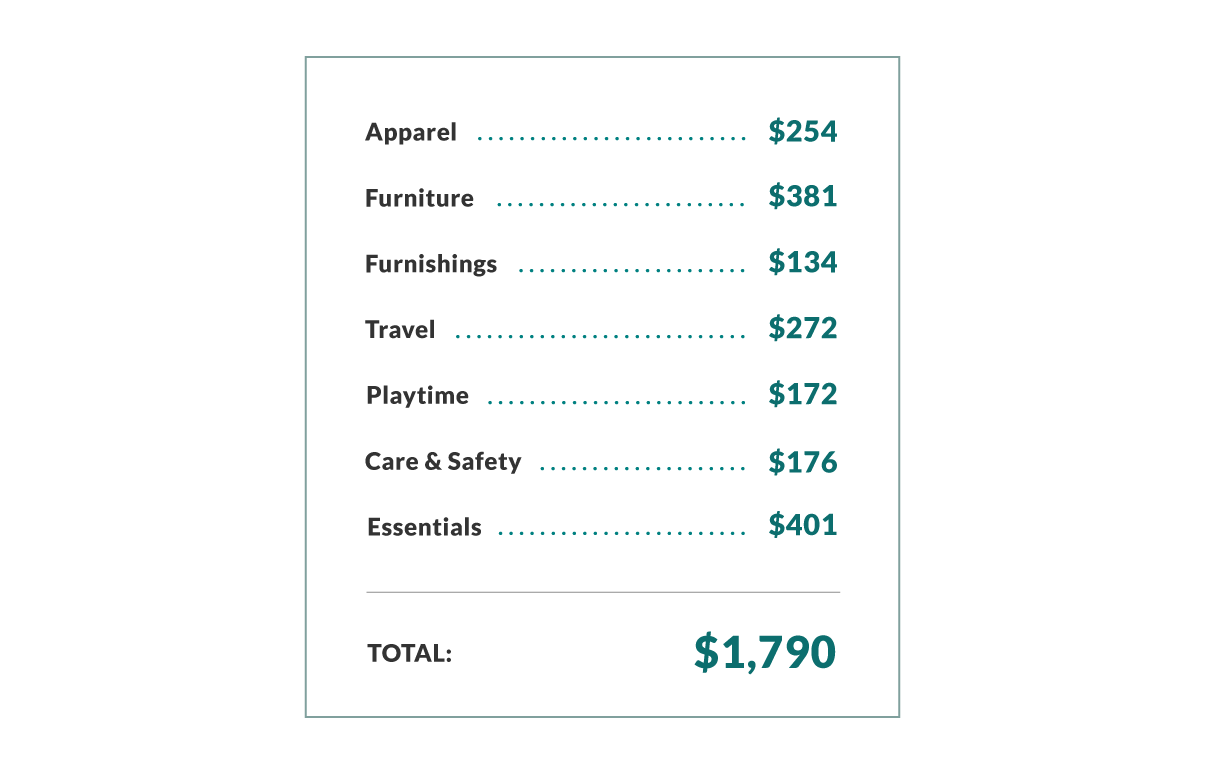


According to BabyList’s Baby Showers and Registry Consumer Report, March 2020, 70% of third trimester parents have had to cancel or change their baby shower plans due to the Coronavirus.
Expecting families are canceling their registries and making more purchases themselves. Out of stock, longer delivery times and closed retail locations are causing parents to purchase must-have products like car seats and strollers earlier and stockpile basics and consumables like diapers and wipes.
Having Children Spurs Other — Usually Expensive — Purchases
Purchases made to accommodate a growing family

Most popular luxury brands in Baby & Kids

40% of parents feel it is important to have luxury products for their children.
Parents Are Feeling the Pressure from Social Media and Their Peers
53% of parents agree there is pressure to compete to have the latest and greatest children’s gear
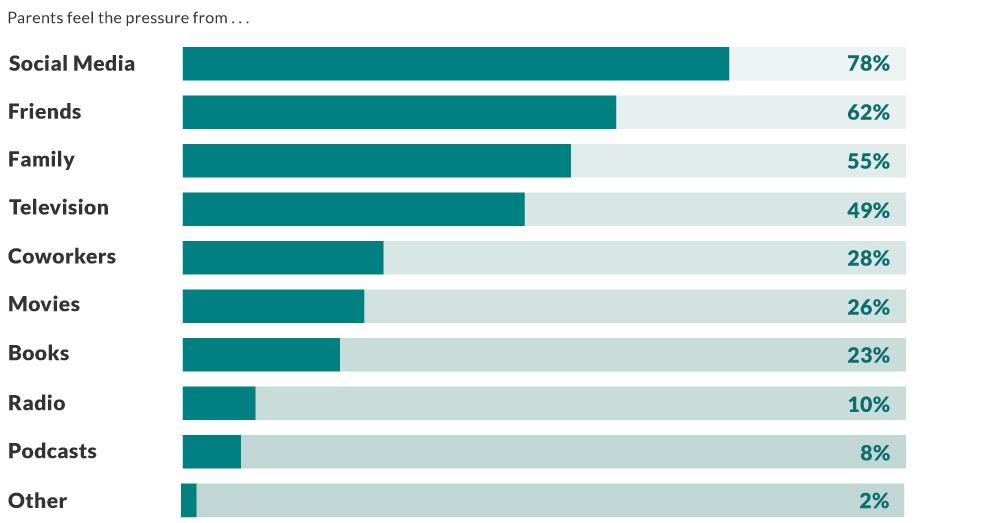
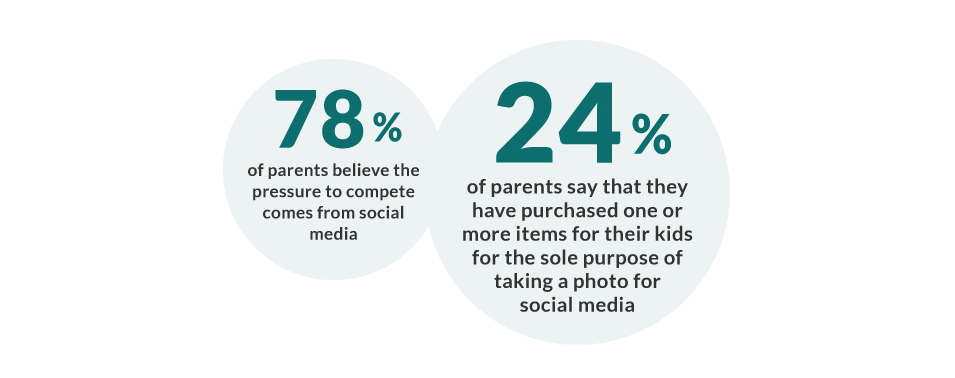
Parents Are Most Likely To Purchase Kids’ Clothes for Social Posts
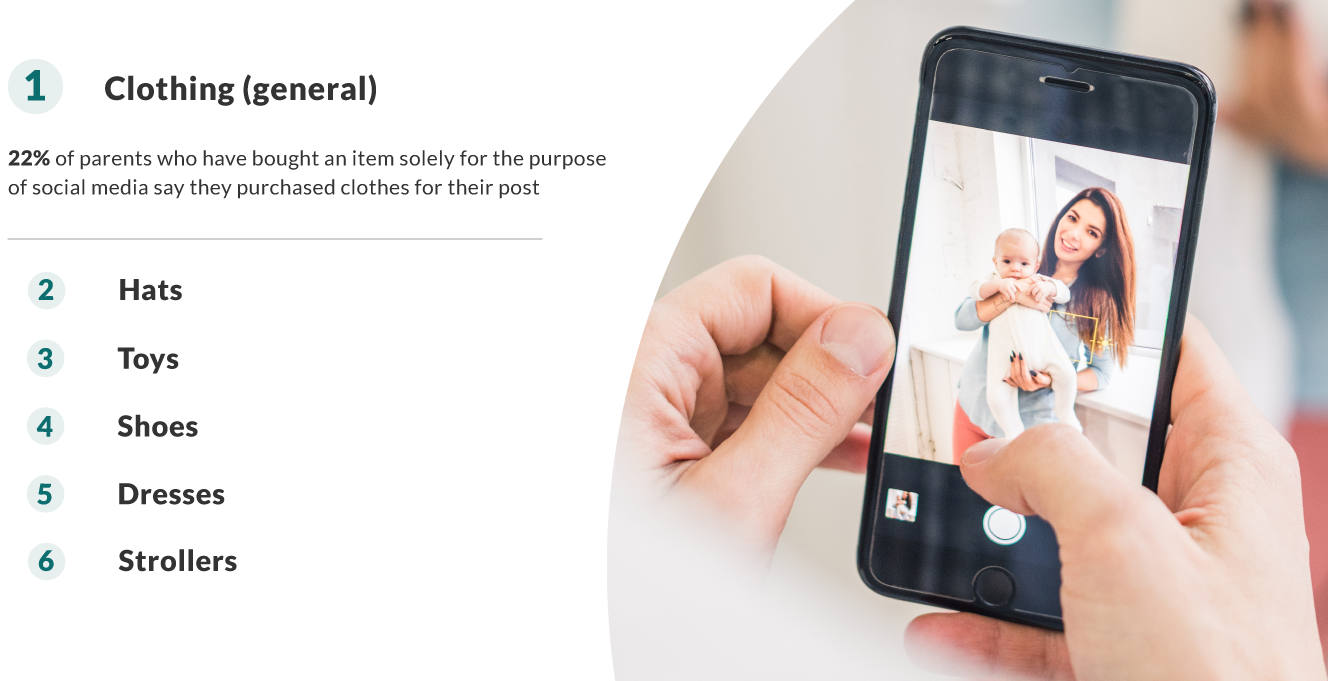
Concern for the World Their Children Will Inherit is Top of Mind For Parents
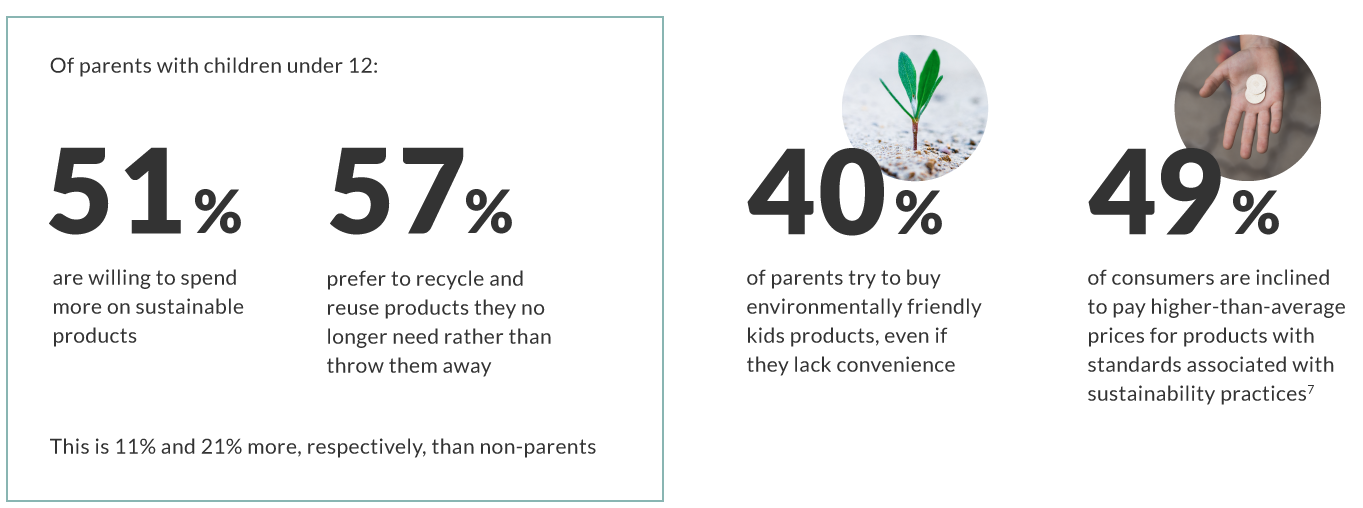
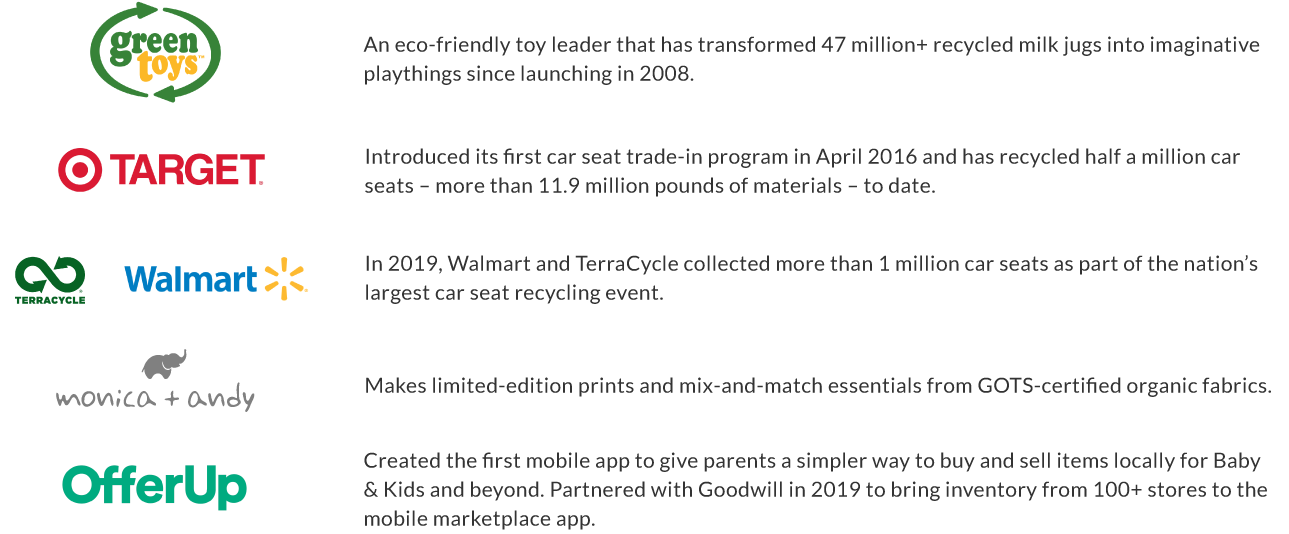
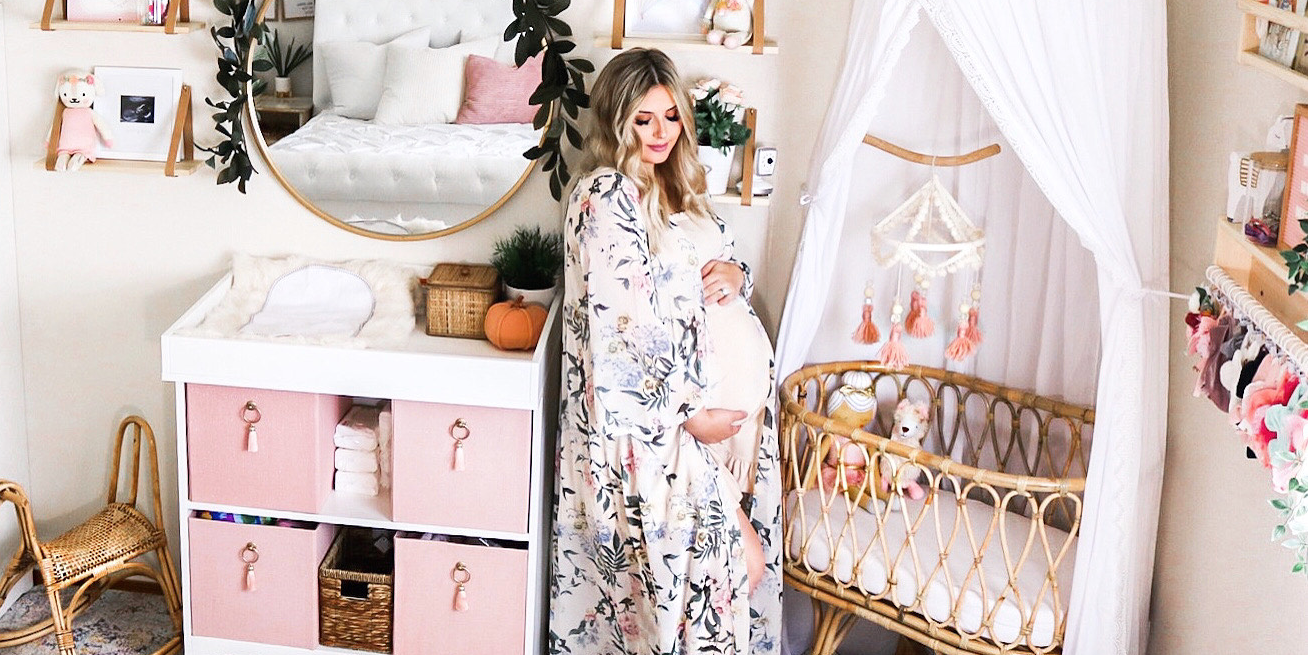
SECONDHAND BABY AND KIDS ECONOMY
“Recommerce is one of the most exciting aspects of the kids market; not only is it the fastest-growing channel but it is a segment that is aligned with consumers’ desire to be more sustainable and more budget-conscious.”
– Neil Saunders, GlobalData Managing Director & OfferUp Recommerce Report Lead Analyst
Parents Use Secondhand Products Across All Baby & Kids Categories
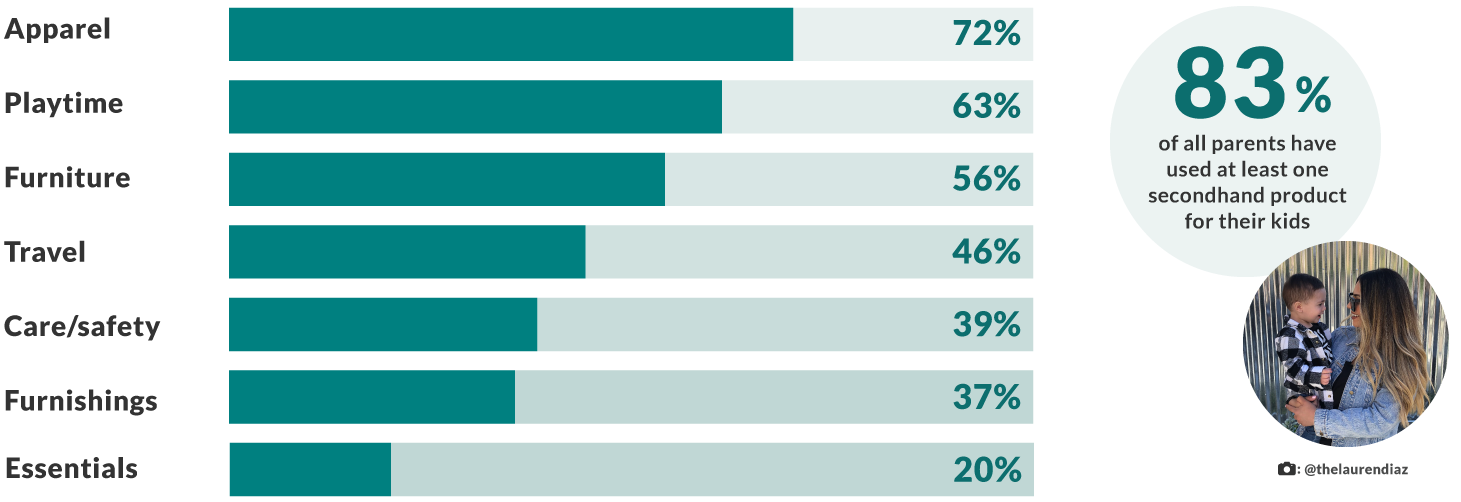
Hand-Me-Downs Are A Long Accepted Tradition
Recycling and reusing within families and friendship circles makes the Baby & Kids segment one of the most sustainable product categories
Sources of secondhand items:
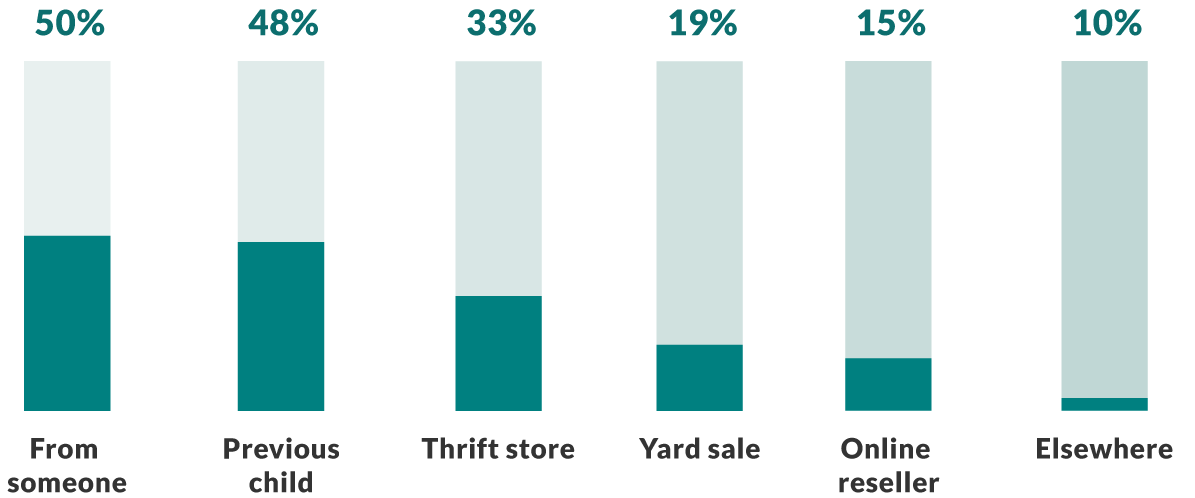

“Kids grow and go through things so quickly, and sometimes you can’t or don’t want to pay top dollar for items. It’s really exciting to find secondhand items at such a low cost, and apps like OfferUp have really helped us out as we’ve expanded our family.”
- Jordyn Hadwin, OfferUp Community Member & Mom of 3
Parents Are Gifting Secondhand Items
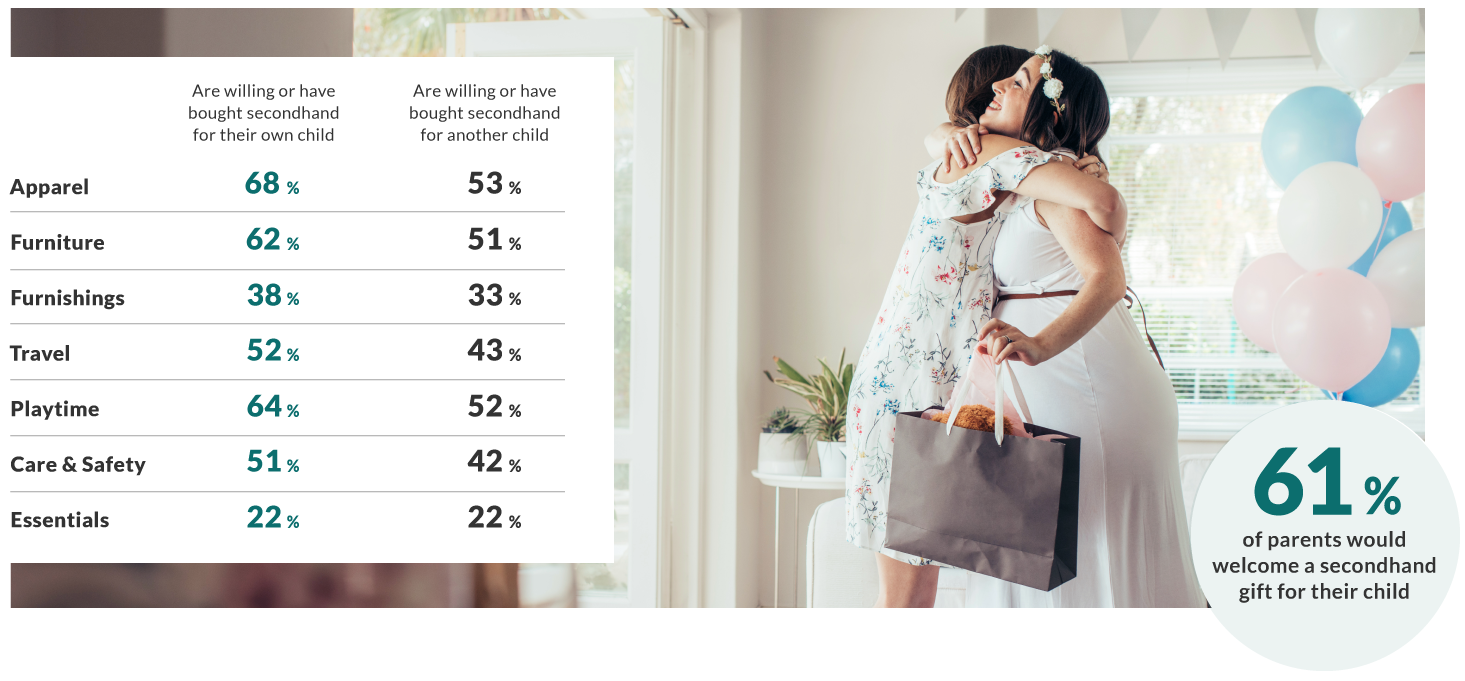
Parents Also Want to Resell Children’s Items

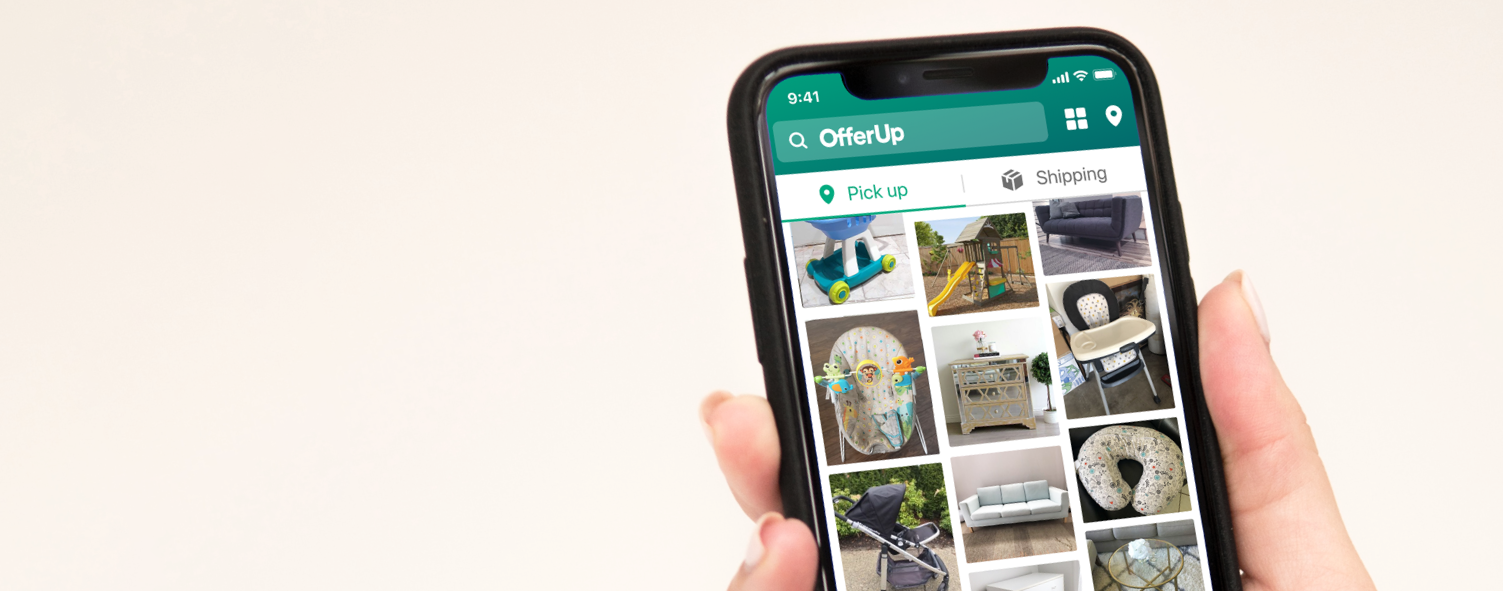
BABY & KIDS TRENDS ON OFFERUP
“Today’s parents are savvy and care deeply about how they can enrich their children’s lives in sustainable ways. OfferUp makes it easier than ever for parents to make and save money on essential items for their family, while also connecting with like-minded parents within their communities.”
- Natalie Angelillo, OfferUp Vice President of Community
OfferUp’s Most Popular Baby & Kids Brands
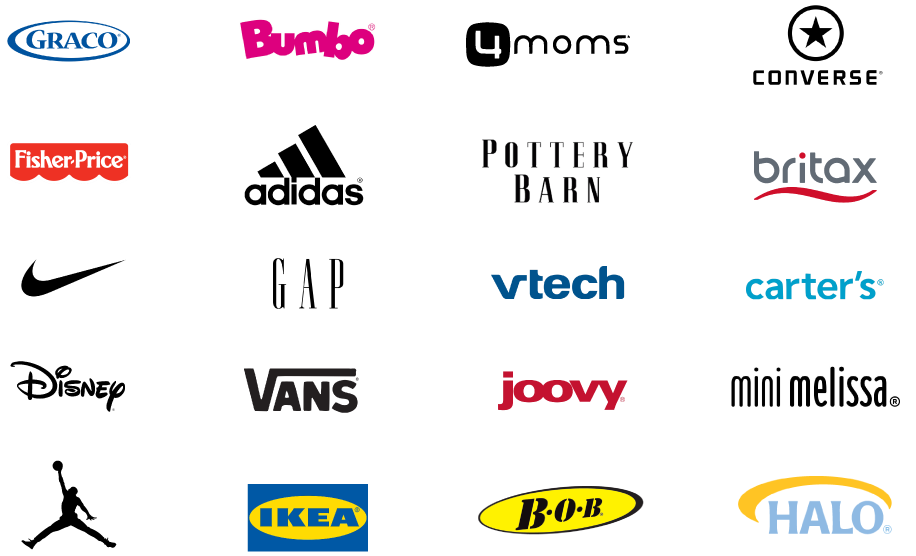
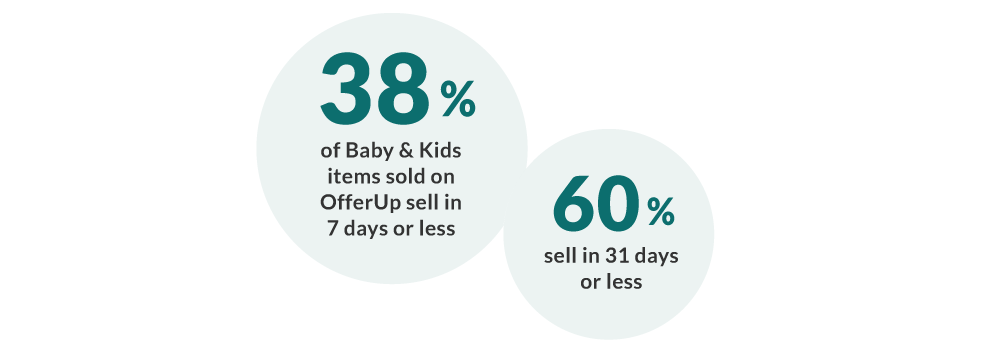
Best-Selling Baby & Kids Items on OfferUp
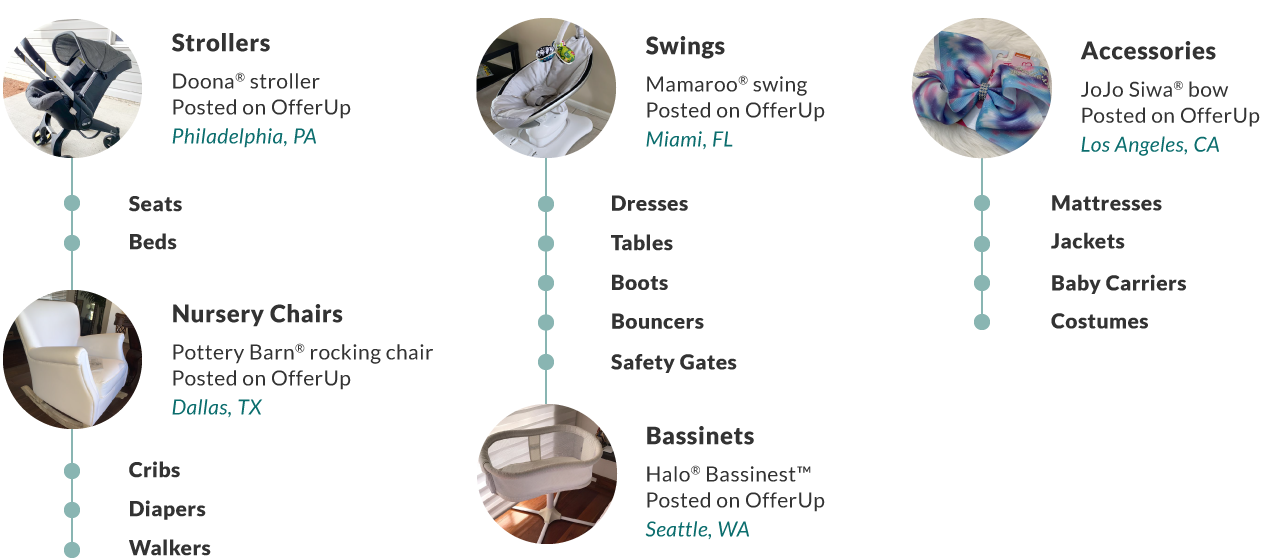
Best Baby & Kids Brands for Recommerce Value

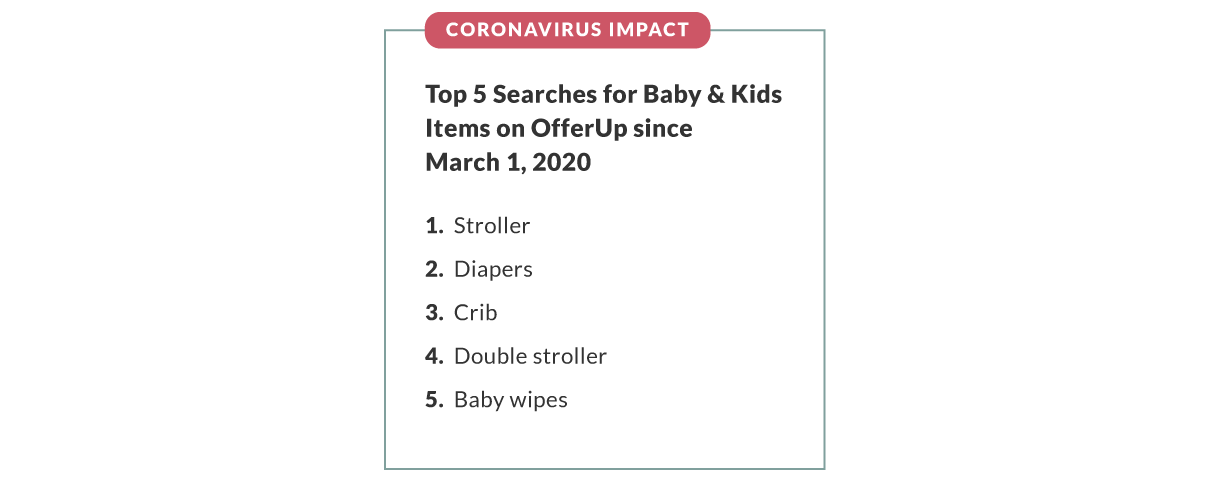
Fastest Growing Markets for Baby & Kids Recommerce
Year-over-year growth in postings on OfferUp
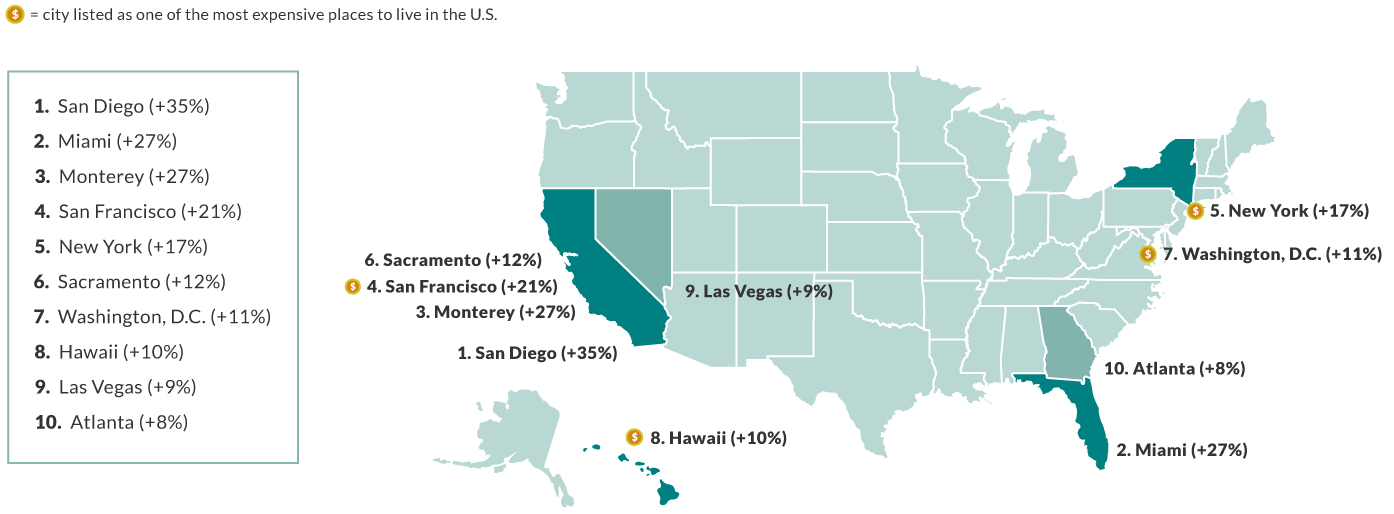
4 of the top 10 markets for Baby & Kids recommerce are also among America’s top 10 most expensive places to raise a family (Footnote 8)
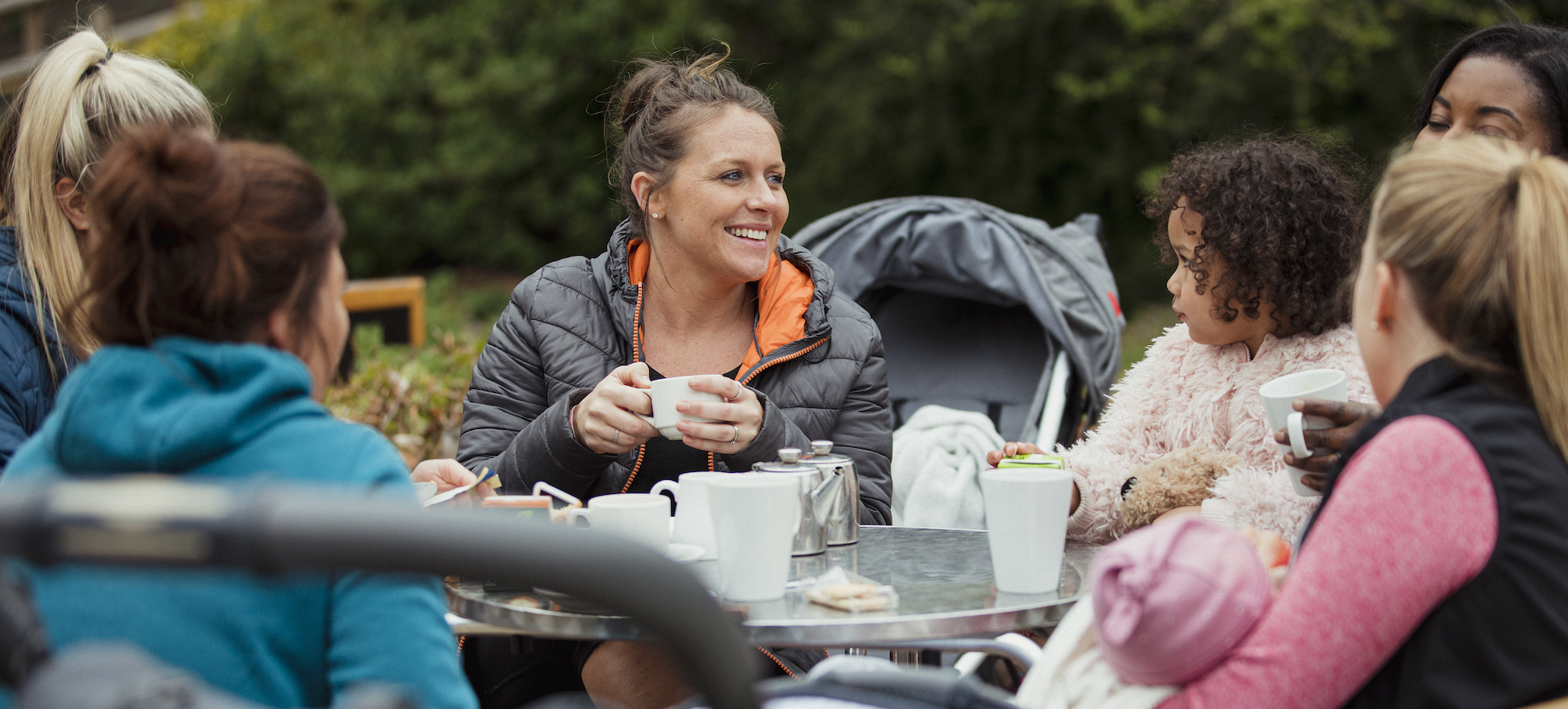
UNTAPPED OPPORTUNITY
Purchasing Multiples of Similar Items is Common When Buying for Kids and Babies
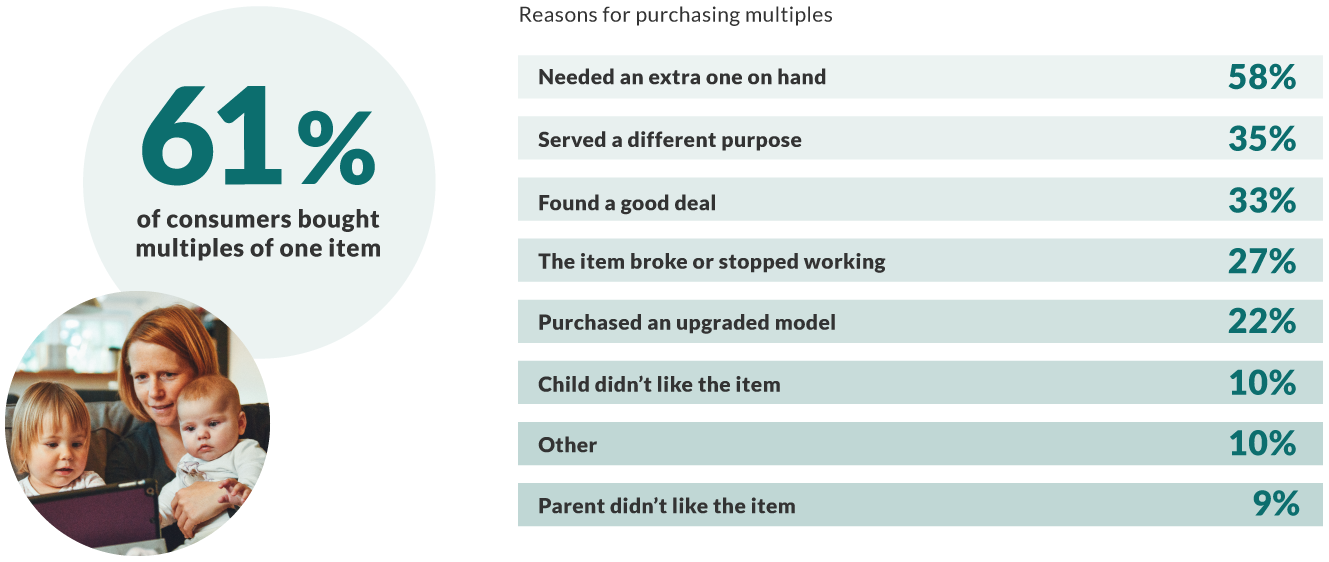
Large Numbers of Parents Own Products They Have Barely, If Ever, Used
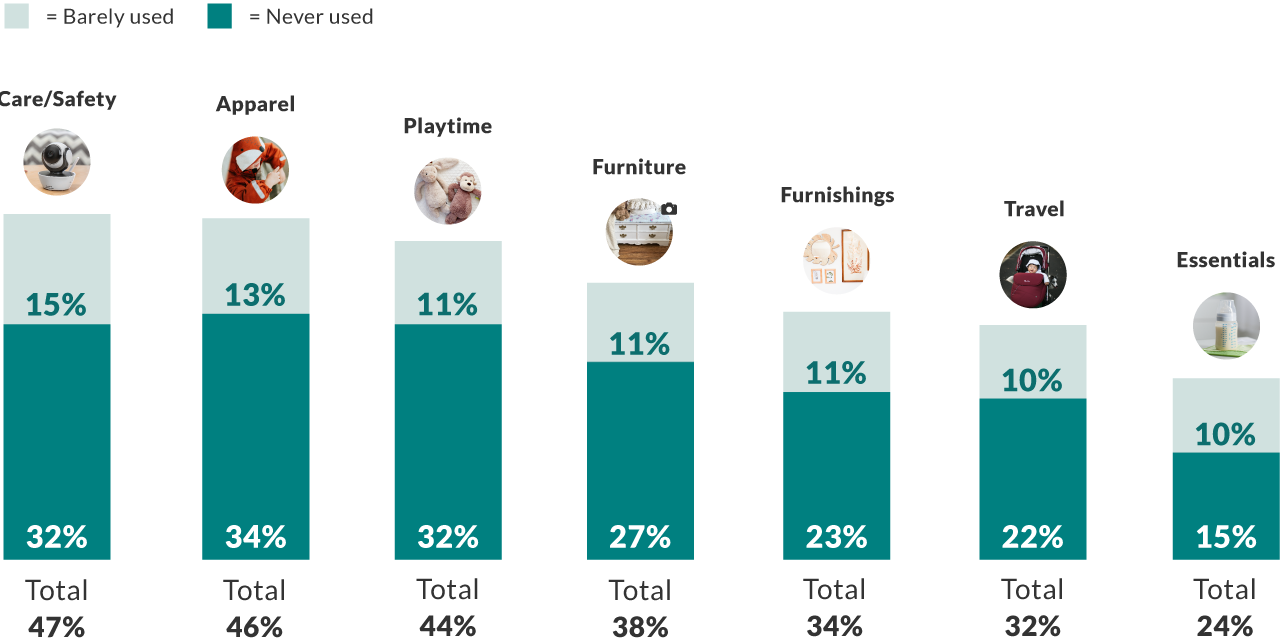
While Most Parents Pass Down or Donate Items, Some Throw Brand New Products Away
Parents who didn’t use a brand new item . . .

1 in 10 parents also threw away used but still functional kids items
The 10-Year Environmental Impact of Throwing Away New and Functional Used Items is Dramatic. If Parents Resold Those Unused Items Instead of Throwing Them Away, They’d Eliminate Enough Waste to Fill 17.3 Million Trash Bags
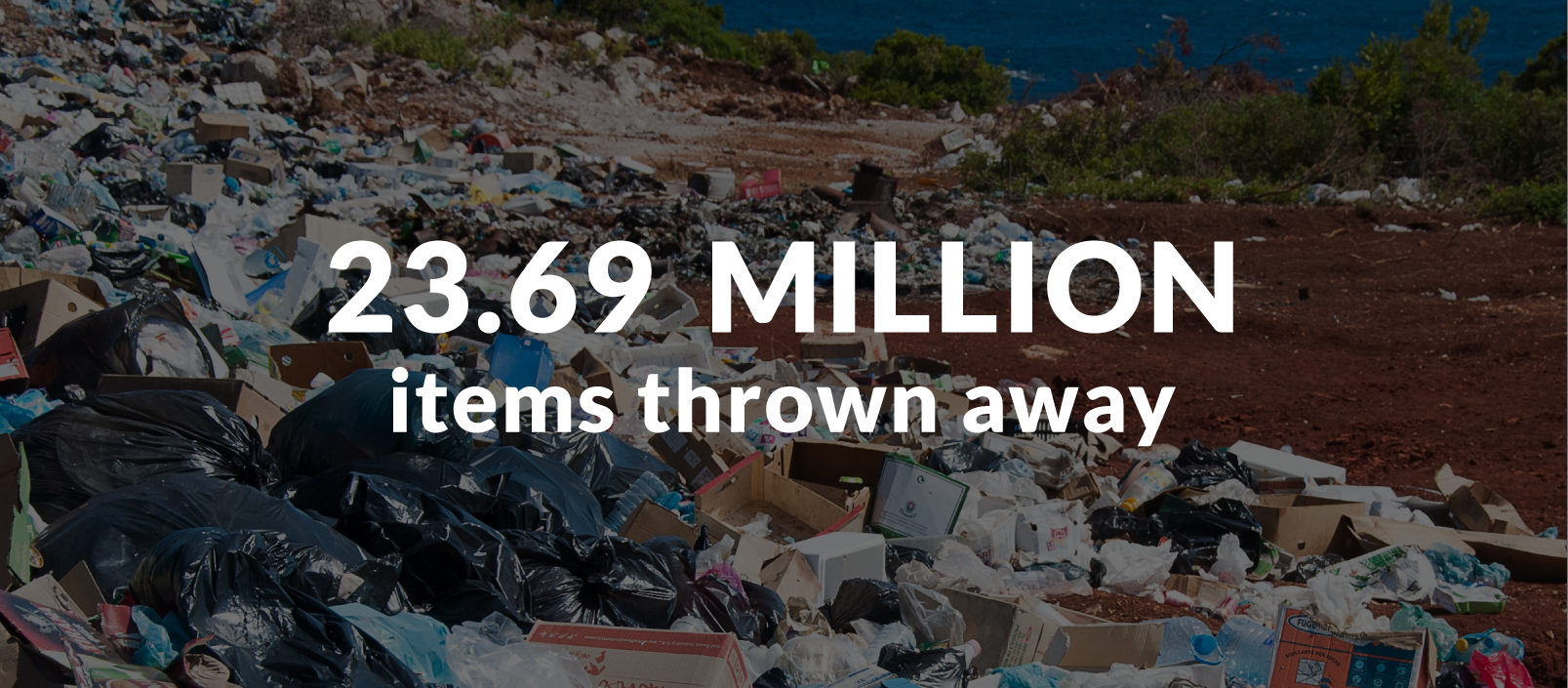
In 2019, If Parents Resold Their Items Instead of Throwing Them Away, They Could Have Made $84.5M
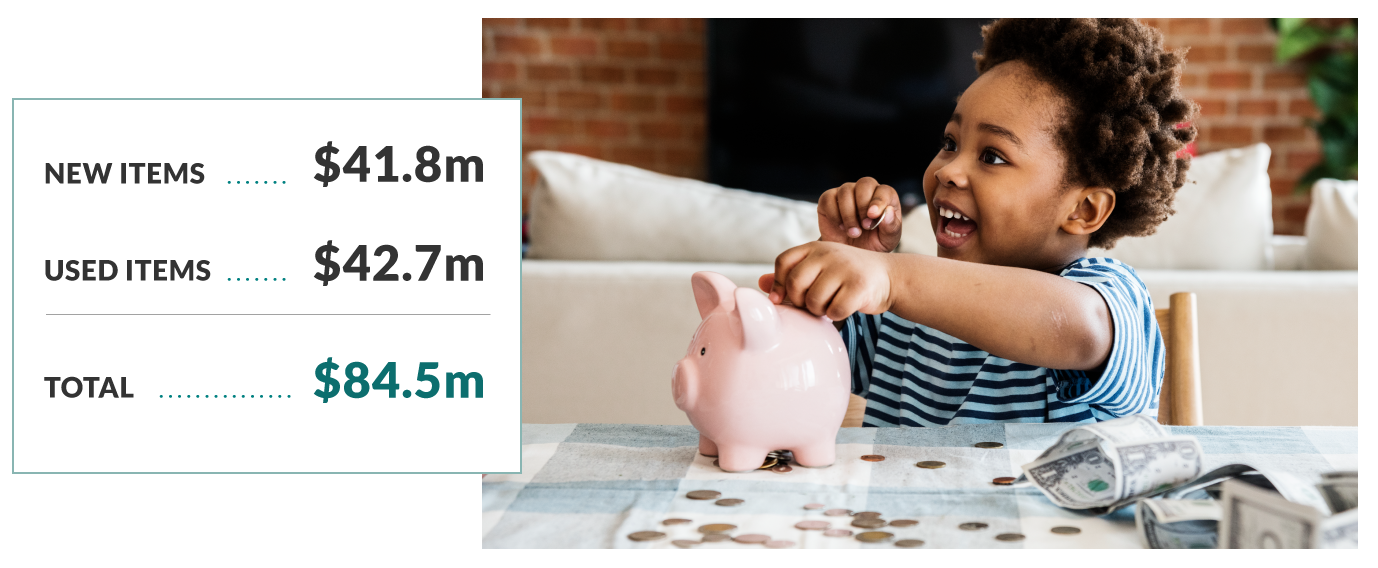
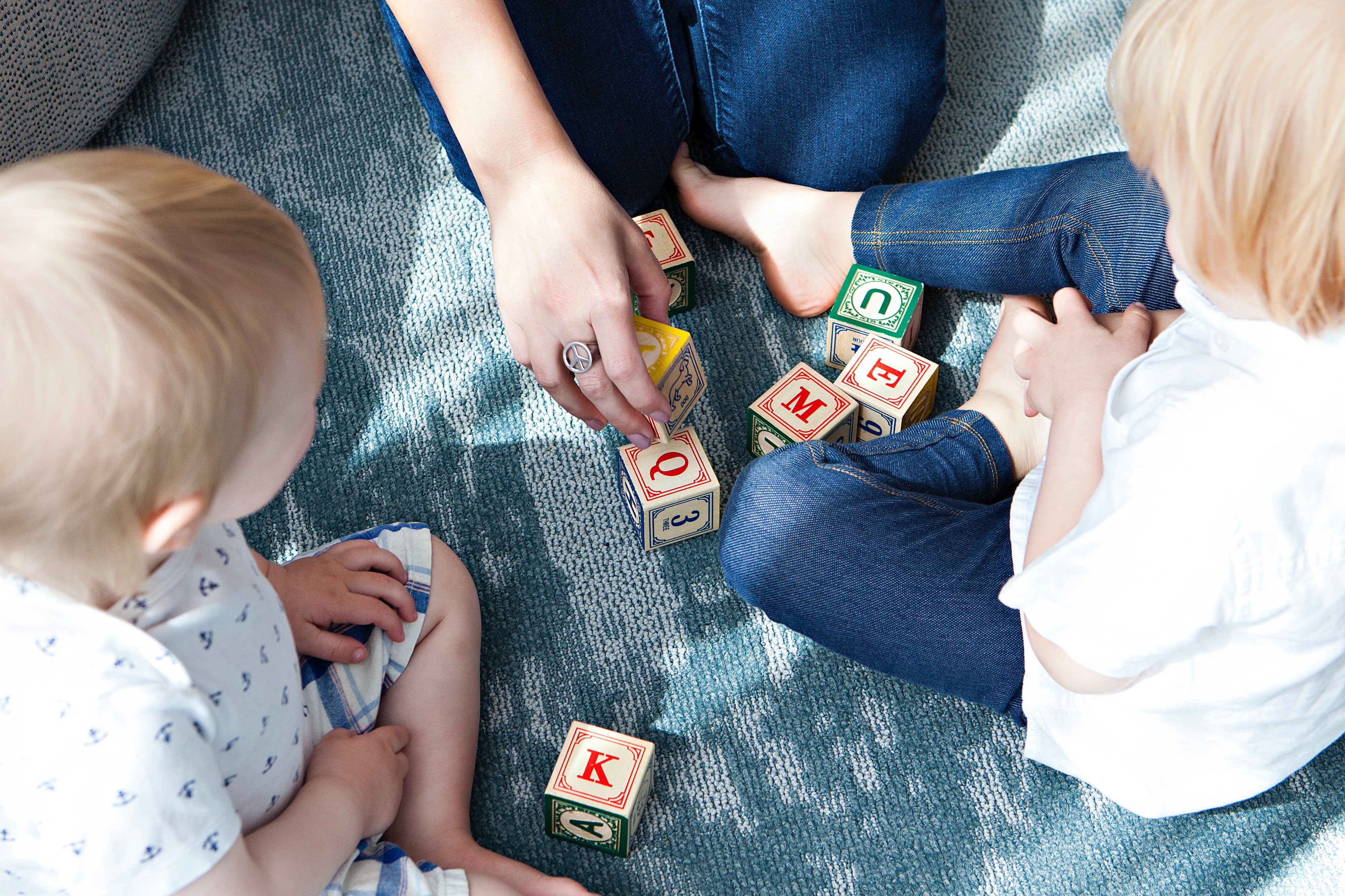
PARENTING DURING CORONAVIRUS
“As a parent, I’ve experienced stress during this time by trying to explain to my kids why we can’t go places and do things we typically do. Coronavirus has changed my shopping habits. I don’t go out to browse the stores like I used to, but I still use OfferUp and having a bit more free time has allowed me to go through items in my home and figure out what I would like to sell.”
- Jordyn Hadwin, OfferUp community member
Financial Stress Has Intensified For Parents Due to Coronavirus
71% of parents are worried about their personal finances
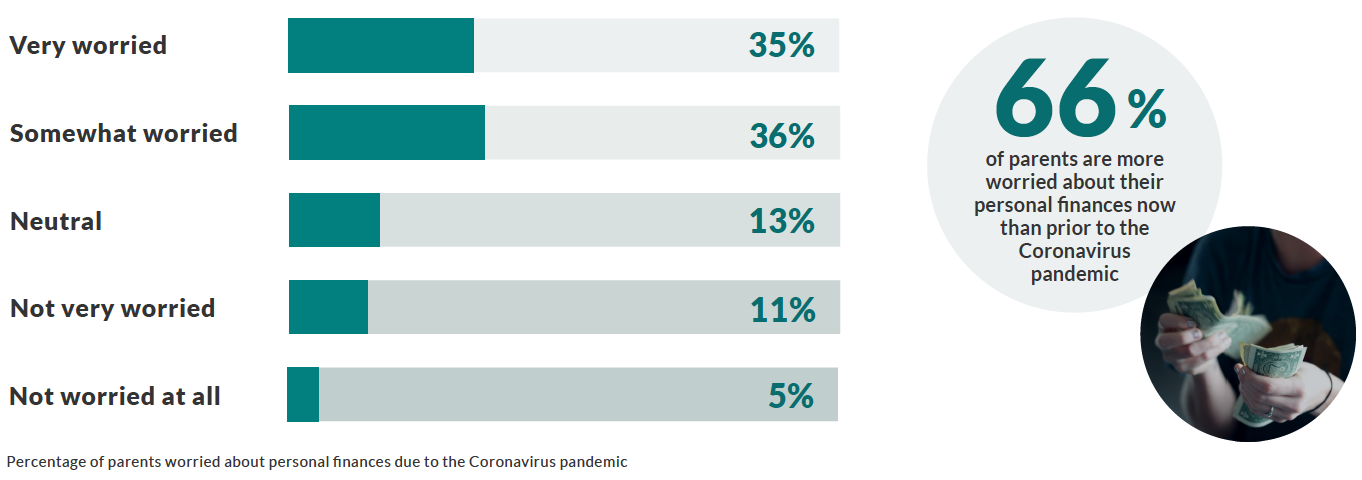
Keeping Kids Entertained is the #1 Cause of Parenting Stress During Coronavirus
According to parents, the most challenging parts of parenting since the start of the Coronavirus pandemic are:

“I am the only one working, and I can ’t work from home. My husband is going crazy trying to parent on his own (my daughter is his step-daughter) while navigating her educational needs in a language that isn ’t his primary language. I’m trying to figure out how to assist them when separated from them by as much as 100 miles some days.”
- Mother, 1 child, Missouri
Despite Financial Concerns, Parents Are Still Spending as a Direct Result of the Pandemic
64% of parents have purchased baby and kids’ items as a direct result of Coronavirus
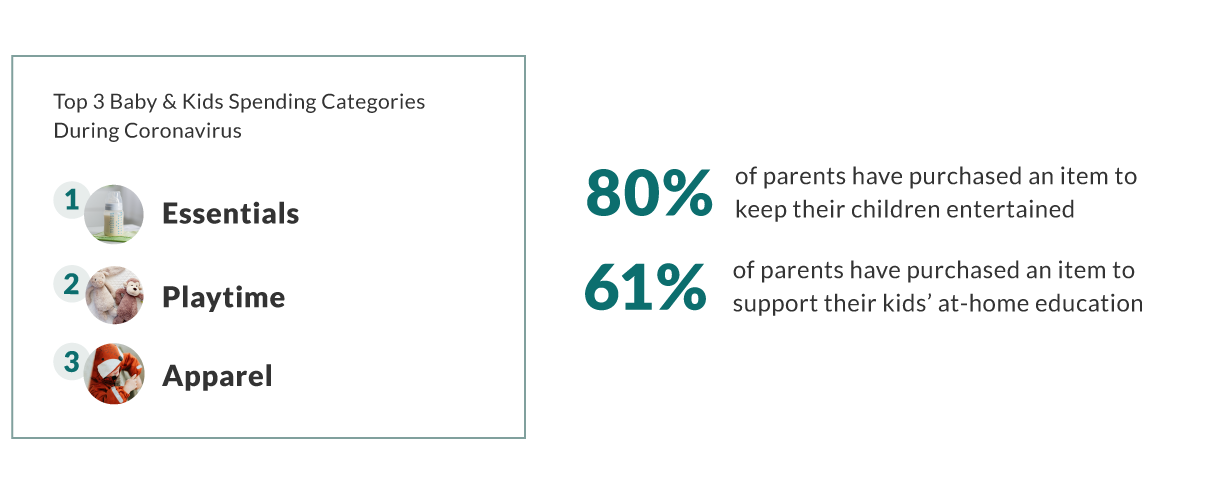
OfferUp has seen a 100% increase in average weekly shopping engagements in the Toys and Games category compared to the first 45 days of 2020.
“I have purchased books for [my kids] to read, Legos to build, puzzles for them to solve, sidewalk chalk to draw in the driveway…”
– Mother, 2 children, New York
“We got [our son] his own laptop because his mother needed the one we already had for work. Now he can use that to handle his online classes.”
– Father, 1 child, Florida
“I have purchased a tablet specifically for toddlers and [my son] loves it! I also bought a few toys and games to keep him busy. They all did work!”
– Mother, 1 child, Illinois
Educational Toys and Crafting Supplies Top Parents’ Lists For Family Purchases Right Now
Percentage of parents who have already purchased or are planning to purchase the following items for their families amidst the Coronavirus pandemic:
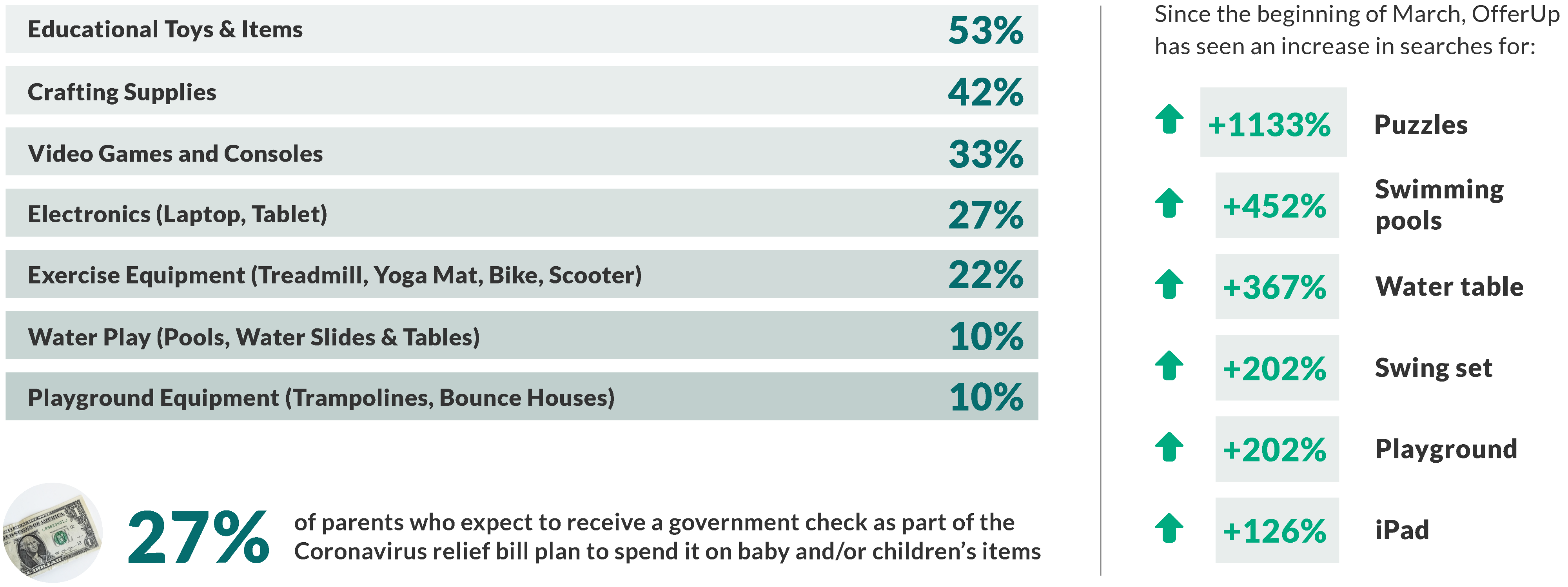
Parents Are Shopping Locally and on Online Retailers and Resale Marketplaces During the Pandemic
60% of parents say the Coronavirus pandemic has impacted where they shop for baby and kids gear
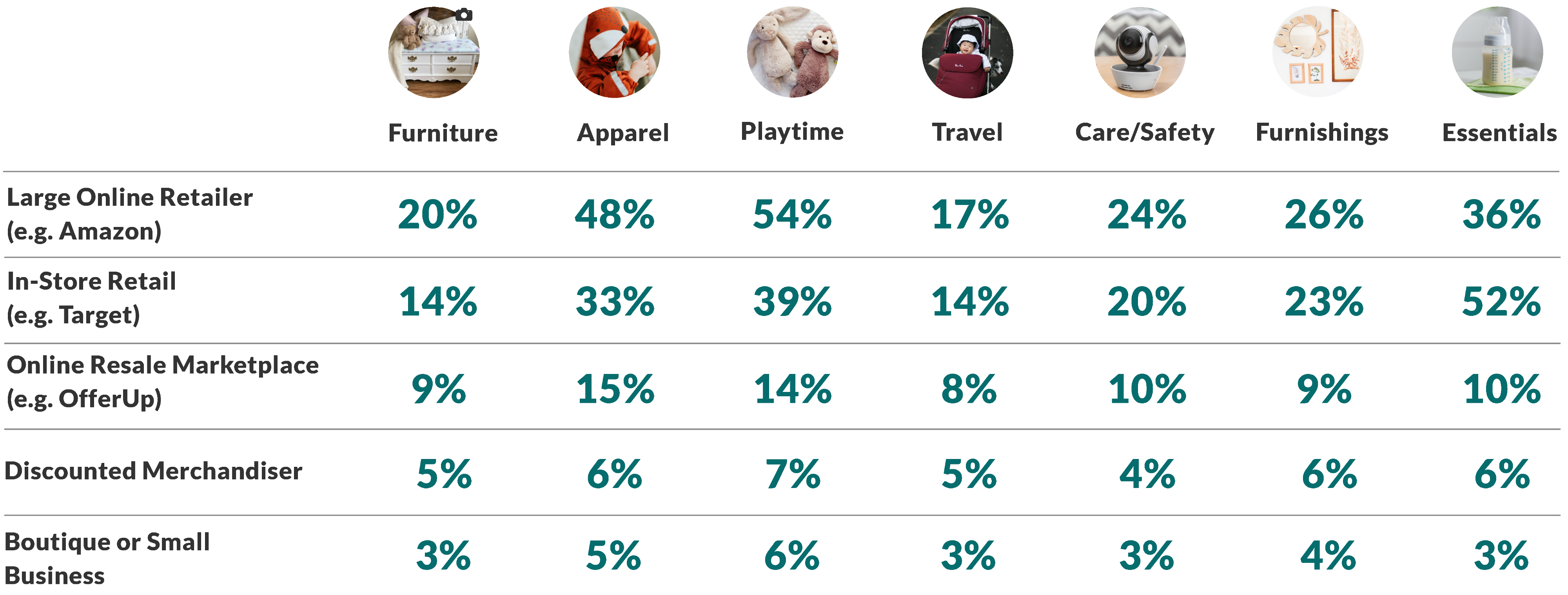
Coronavirus Has Dramatically Shifted Resale Shopping Behavior in the Baby & Kids Category and Beyond
Of parents choosing to shop with online resale marketplaces:
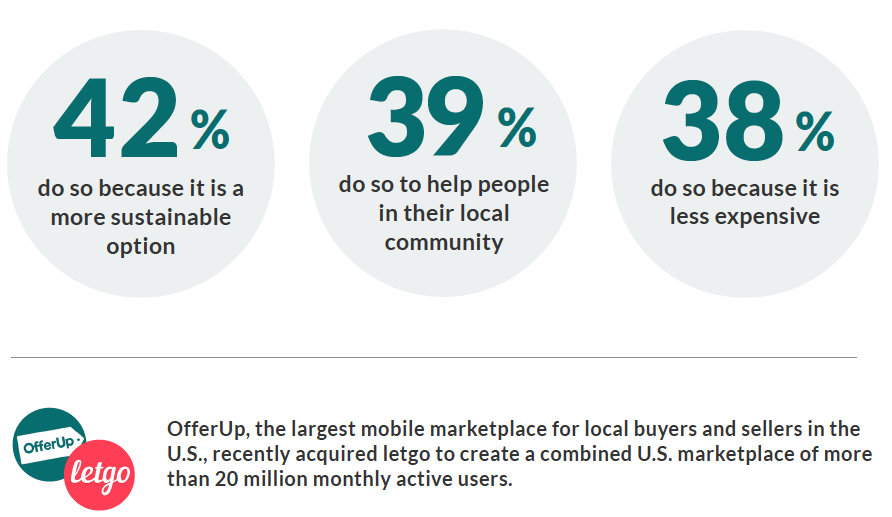
Since the beginning of March 2020, OfferUp has seen:
A 14% increase in engagements with its Baby & Kids category
A 3x increase in people buying video games
130% increase in keyword searches containing “exercise,” “gym,” “weights,” “treadmill” or “elliptical”
More than 2x increase in activity for Computer Equipment
A 30–40% increase in buyers using nationwide shipping
Despite Their Struggles, Parents and Neighbors Are Finding Ways to Connect and Support Each Other
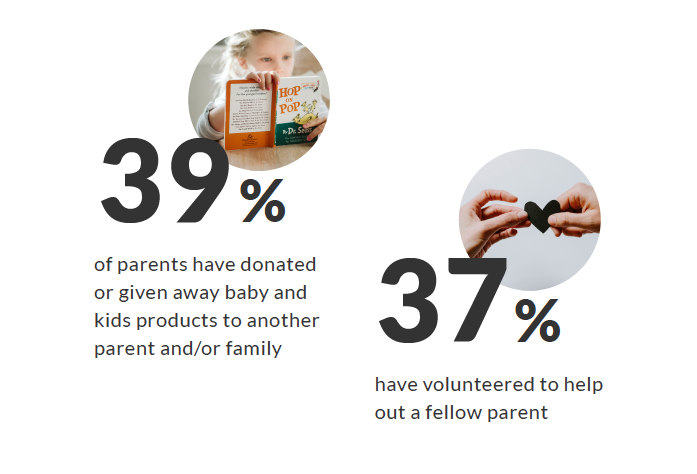
“[We’ve seen] lots of neighbors helping each other any way they can and still being socially distanced. We had one that knew we had to cancel a trip to Disney World, and they planned a whole day of crafts and special Disney things for my kids to do at home and left it on our doorstep. ”
– Father, 2 children, Kentucky
“Our neighbors have let us know that they’re here for us, offered supplies if we needed them, and have texted when they knew we were stressed about our child’s fit-throwing to make sure we were OK.”
– Mother, 1 child, Minnesota
“My boss has given up giving herself a paycheck, so she could pay staff. A restaurant owner gave me an amazing bottle of wine for far below their actual cost. People have painted rocks for others to find around the neighborhood.”
– Mother, 2 children, Washington
Random Acts of Kindness on OfferUp
“These are really unique circumstances, but I’ve never been prouder of how the OfferUp community has been able to come together and support one another. I’ve heard from so many people about how they’re turning to OfferUp to find the things the y need most right now. I spoke with a woman who bought a trampoline for her daughter on OfferUp after she couldn’t buy it at any store because they were closed. We’ve also seen so many examples of people giving away free items, including books, toys, bicycles, and more out of a desire to help other parents in need. It’s been truly remarkable, and I expect that we will continue to see this level of community support continue to grow.”
– Nick Huzar, OfferUp
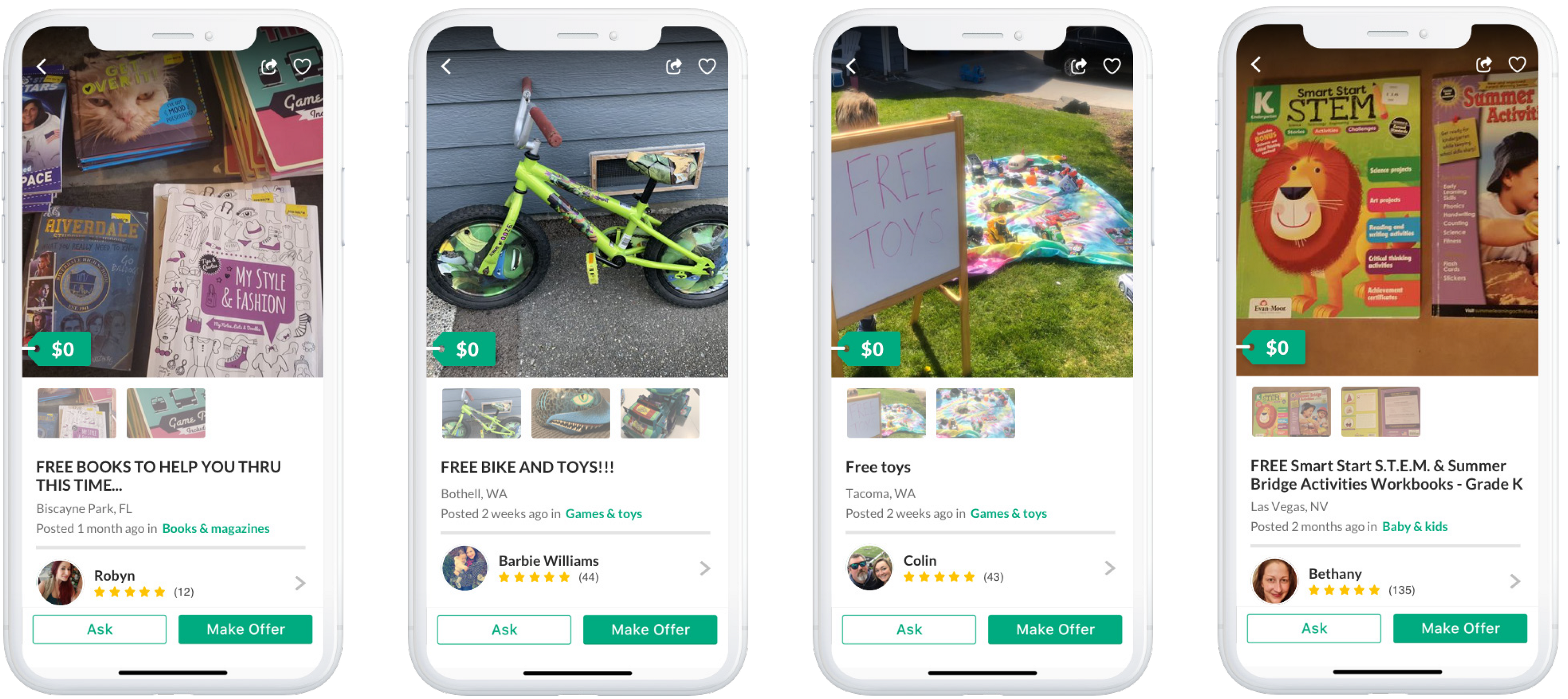
METHODOLOGY
The OfferUp Recommerce Report includes research and data from retail analytics firm GlobalData. GlobalData uses consumer surveys, retailer tracking, official data, data sharing, store observation and secondary sources to analyze, model and calculate metrics including market and channel size, and market share.
Third-party online market research company Innovate MR conducted a December 2019 survey of 2,046 American parents regarding recommerce in the Baby & Kids retail market.
Third-party online market research company Innovate MR conducted a second survey in April 2020 of 2,037 American parents regarding Coronavirus’ effects and the Baby & Kids retail market.
Additional data sources include internal OfferUp community data and independent secondary research. A complete list of sources is in the report appendix.
DEFINITIONS
Recommerce refers to the process of selling previously owned, new or used products.
The U.S. Baby & Kids market is composed of apparel, furniture, furnishings, travel, playtime, care and safety, andessentials (see methodology section for more details).
Kids generally means items bought for children aged 12 or under, or products that are specifically aimed at that age group.
Circular Economy is based on the principles of designing out waste and pollution, keeping products and materials in use, and regenerating natural systems (from the Ellen MacArthur Foundation: “What Is The Circular Economy?”.)
SOURCES
Primary sources:
Consumer Survey: The consumer findings in this report are based on two online surveys administered to an online national sample of U.S. parents. Questions explored purchase behavior, intentions and attitudes in the baby and kids category. The samples are gender and geogr aphically representative, and were fielded from December 16–20, 2019 and April 10–13, 2020 by online sampling company InnovateMR, who has access to more than 3 million panel members worldwide, implementing rigorous sample quality controls to ensure incentivized respondents are reliable and engaged.
Sample #1
Size: 2,046
Targeting criteria: U.S. Adults (18+) with children under the age of 12
Sample #2
Size: 2,037
Secondary Sources:
Forbes 5/19/19 Article: “The New Mom Economy: Meet The Startups Disrupting The $46 Billion Millennial Parenting Market” (1)
USDA: Data from 2015 report, USDA Expenditures on Children by Families, 2015 (2)
Babylist: Data from 2019 report, Business of Baby 2019 (3)
Edmunds: Data from 2019 report, New Vehicle Prices Climb to Highest Level of the Year in April, According to Edmunds Analysis (4)
Consumer Reports: Why do washers and dryers cost so much? (5)
Zillow: United States Home Prices and Values (6)
Nielsen: Data from 2018 report, Was 2018 the Year of the Influential Sustainable Consumer? (7)
Economic Policy Institute: The 10 most expensive places to raise a family in the U.S. (8)
Education Week: Map: Coronavirus and School Closures 9
Disclosure: All third party brand names and logos are trademarks or registered trademarks of their respective holders. Appearance in this report does not imply any affiliation with or endorsement of OfferUp.
Additional Definitions
In all cases, spending is consumer expenditure within the United States and is exclusive of sales tax. Wholesale and business expenditure are excluded.
GOTS-Certified (Global Organic Textile Standard) is recognized as the the world’s leading processing standard for textiles made from organic fibers. Only textile products that contain aminimum of 70% organic fibers can become GOTS certified.
The categories mentioned in this research are composed as shown below.
Apparel
Baby clothing
Kids clothing
Furniture
Cribs
Kids beds
Highchairs, boosters
Other furniture
Furnishings
Bedding and bed linen
Bath linen
Other linens
Other décor
Travel
Strollers
Car seats
Baby carriers
Diaper bags
Other travel
Playtime
Toys and games
Activity gear
Playards
Bath toys
Other play
Care and safety
Baby monitors
Baby gates
Other safety
Essentials
Feeding accessories
Diapers
Wipes and disposables
Potties and accessories
Other essentials
